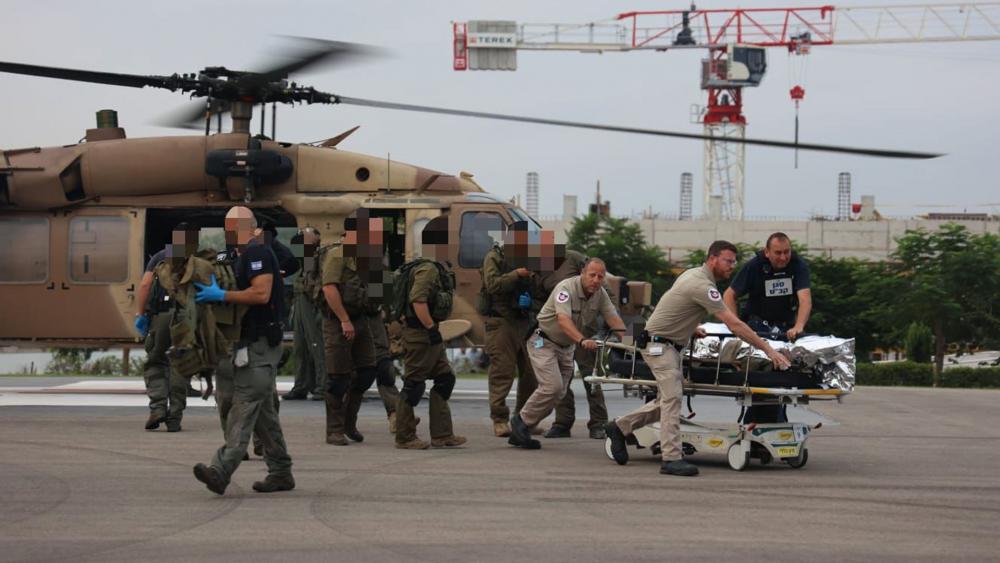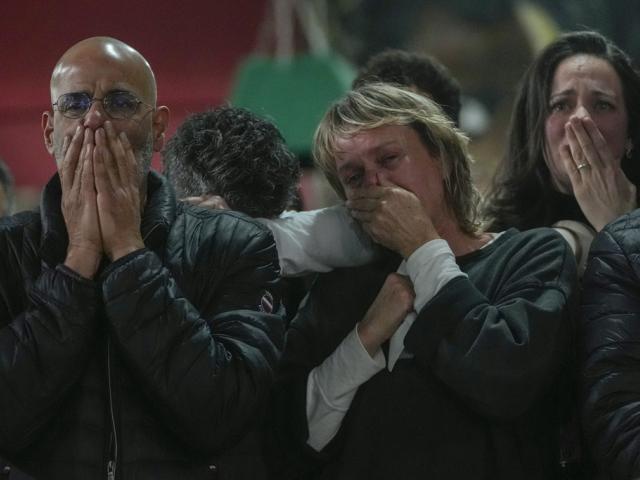SHEBA MEDICAL CENTER, TEL HASHOMER HOSPITAL, Israel – Hospitals in Israel are reaching breaking points after more than six months of treating civilians, former hostages, and wounded soldiers from the fighting in Gaza.
One positive result of the stress and strain is how Israeli Jews and Arabs are working side by side to save lives.
Workers inside Sheba Medical Center feel they're almost always on a near-war footing.
Steve Walz, the hospital's spokesman explained, "So, on October 7th, we got word that something terrible was happening down around Gaza, and we started receiving the flow of patients, you know, in the afternoon, in the evening into October 8th, which was the busiest day."
More than a thousand soldiers and civilians have been treated here, and Walz told CBN News the cases include trauma, mental stress, and bullet and shrapnel wounds. Then came those who had been held hostage.
"We had a special team dedicated just to dealing with the hostages – where they get a doctor, a psychologist, and a social worker to deal with each hostage," Walz recalled. "And so, to date, we've dealt with 32 hostages and one dog."
Sheba Medical Center at Tel Hashomer Hospital is the largest medical facility in Israel. It's treated some 70 percent of the Israel Defense Forces soldiers wounded since October 7th.
"So, we've been learning on the run, and all the doctors who've been dealing with the hostages and even the wounded soldiers have, more or less, had to throw away the medical book," Walz related, and added, "we're rewriting it because from the soldier's point of view, the doctors are seeing wounds, severe wounds, that we've never seen before – because every few years, unfortunately, the ammunition gets upgraded so it's more damaging to the body."
It's also affected Walz personally.
"In late October one morning, a helicopter was coming in and I was alerted that a helicopter was coming in," he told us, "and a minute or two later, my daughter (is) on the phone saying it's Eliyah, my son-in-law, seriously wounded, landed at Sheba after being wounded by a mortar and a sniper when he emerged from his tank to check something on his tank."
After multiple surgeries and months in the hospital, Eliyah is doing well.
"He's a hero," Walz declared. "And he got a tremendous amount of TLC here, like every soldier does. It was traumatic for the entire family. Of course, my daughter, who – they were married for less than a year – and he made it out of that coma faster than anybody thought, and rehabilitated."
Roey, a reservist, first fought terrorists inside Israeli border communities on October 7th. Then came the call to enter Gaza, where he was wounded, and then brought to Sheba.
Roey said of the staff, "They (are) really, really amazing – everything that you need, they give it to you. And they do the best, so you can gp back to be like you (were) before the war, physically and mentally."
Roey believes he still has a long recovery ahead and the trauma remains, but he's hopeful.
"I want to go back to my work as soon as possible, so I can continue with the regular life as good as I can," Roey said. "But I know part of me was still in Gaza. We are strong and we are unite(d), and we're going to win this."
***Please sign up for CBN Newsletters and download the CBN News app to ensure you keep receiving the latest news from a distinctly Christian perspective.***
Aaron, a reserve combat soldier, was on a business trip when Hamas invaded.
"I got back from the United States, and I joined my unit in the South as we prepared to be part of the first wave of the ground operation into Gaza," Aaron recollected.
After weeks of training, they entered Gaza on foot, going house to house, looking for tunnel entrances.
"From the second we got there, we were shot at constantly. So, AK 47s, snipers, RPGs, anti-tank missiles, mortar shells. You get used to this cacophony of explosions around you. but, you know, of course, that's tough," Aaron explained.
Fifteen days later, while passing a United Nations-operated school, his unit came under fire.
"So, my commander stops and, he says, 'Let's ask permission to go into the house,' he recounted. "And, when he stopped to do that, there was a sniper behind the school that was waiting for that opportunity to shoot one of our officers."
As Aaron ran to save his commander, the sniper shot him in his leg, side, and back.
It's incredible. It's miraculous," Aaron declared. "The fact that I get to keep my leg, that I'll make a full recovery. All of this is not taken for granted."
He's been at the center for about four months.
He remarked on how well he's been treated."The unique way that people come together here, the amount that you feel that the Arab Israelis and Jewish Israelis are united here in Sheba for one purpose, which is just to provide immaculate, incredible care."
Walz calls Sheba a prime example of how Israelis work together.
We have 25% of our staff are Israeli Arabs, Jews, and Arabs working side by side to save the lives of civilians and soldiers alike. There's no differentiation, something that we do during the year also with Palestinians that we treat from Gaza in the West Bank.
To be successful, Walz says Sheba remains a politics-free zone.
"You walk in the door here. We check our politics at the door. "We're a hospital with a hope, without boundaries," he insisted. "The war is outside of our doors and inside is the battle to save lives."
Did you know?
God is everywhere—even in the news. That’s why we view every news story through the lens of faith. We are committed to delivering quality independent Christian journalism you can trust. But it takes a lot of hard work, time, and money to do what we do. Help us continue to be a voice for truth in the media by supporting CBN News for as little as $1.












 Support CBN News
Support CBN News







